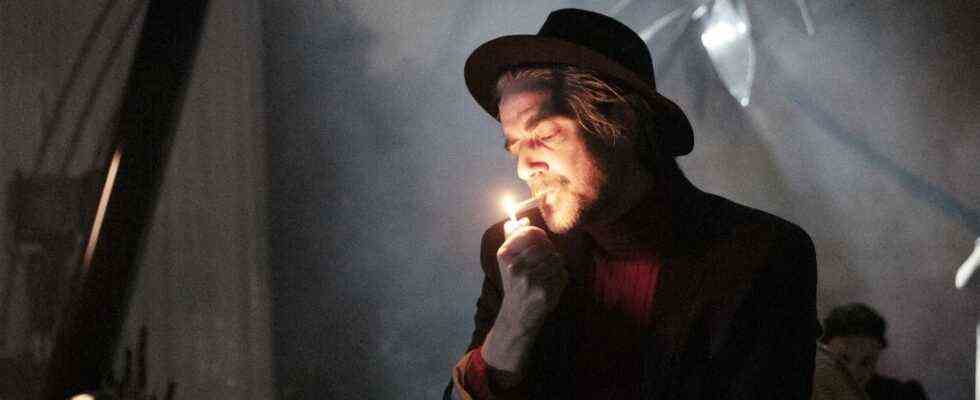The big problem with the proper moral separation of truth and lies is that truth so often has dire consequences, but lies sometimes have the power to heal. In politics, in journalism and in private life, where truth is the high norm for the trusting basis of a sincere relationship, it is therefore important to constantly weigh up what is more conducive to a good conscience: the relentless exposure of circumstances that do not meet the declared moral standards, or the deliberate white lie that prevents a chronic untruth from turning into an acute crisis.
Henrik Ibsen has made the type of indignant moralist, who speaks truth without foresight, the driving force behind numerous plays. Mostly in the private sphere of strained and exhausted family relationships, but sometimes also with deliberate extension into social fields, where his protagonists fear nothing more than disclosure of their guilt and shame. But Ibsen always comes with someone who has good reasons to demand public exposure, the explosive confession. And these reasons are seldom free from hard egoism.
Icelandic director Thorleifur Örn Arnarsson has now brought together two of these pieces, “Die Wildente” and “Ein Volksfeind”, in which the destructive work of Ibsen’s moral arrogance is particularly painful. In “The Wild Duck or the Struggle for Truth”, Gregers Werle, who uses a mixture of idealistic and vengeance motifs to “clear up” the missteps in his family’s environment, is at the same time the spa doctor Thomas Stockmann from the “People’s Enemy”, a man who makes itself the enemy of local economic interests by exposing an ecological catastrophe. And both together in this production probably have something to do with the present, if one follows the many pictorial hints.
Jens Harzer struts around like a Julian Assange for couples therapy
Arnarsson’s Ibsen collage is set in an oil-black idyll made of holiday dummies. Paddling pool, three-meter board, palm trees, animals – everything has the shimmering blackness of an oil spill, which in fashion and fetish culture emits seductive charms. This stage by Wolfgang Menardi plays in gloomy metaphors with the proximity of consumer glamor and its consequences, thus perhaps the most important conflict of truth of Homo oeconomicus today: why people so consistently lie to themselves when it comes to the consequences of their wasteful habits on the foundations of life the earth goes?
In this death paradise of the lurking luxury apocalypse, the actor Jens Harzer now struts around like a Julian Assange for couples therapy, who tears down the little bizarre family happiness of the Ekdals with relentless trumpets. Long-ago events between the two families, one of which is rich and the other impoverished through the fault of the wealth winners, are consistently leaked by this fact fanatic – without any sense of the consequences. While the cover-up had previously made stable conditions possible without any nasty consequences, this data pilot is now exploding truth bombs until all love is destroyed in the greatest honesty.
No, this is not a scene from the TV show “Celebrities under Palms”, but from the Ibsen collage “The Wild Duck or The Struggle for Truth” at the Thalia Theater.
(Photo: Armin Smailovic)
In a very unusual one-dimensionality, Jens Harzer plays Gregers Werle as a maximally unsympathetic cynic who lacks any sympathy. And that stands in clear contrast to the figure compositions of the originals. Both in Werle and Stockmann, Ibsen combined personal motives, honest intentions and idealistic blinkers to create a dangerous Zealot mixture, which initially has a positive, combative effect, but only reveals itself in its egocentric depravity in the course of the drama. But the concept of this adaptation is less about psychological theater than the illustration of a thesis: that the arrogance of western status thinking destroys the world of the poor half of the world, but that its beneficiaries appear as saviors in the chest tone of the Enlightenment. Arnarsson tells this bigotry here as a parable.
However, with this representation of the global conflict as a false service of friendship, only the causer side is so schematic. The Ekdal family, victims of the asymmetrical power constellation in private life, is a touching quartet of lovable imperfections. Cathérine Seifert and Merlin Sandmeyer present the well-rehearsed harmony of life’s lies, as it increases in long-term marriages to bizarre rituals, with an immediacy that they all sympathize with. The weird grandfather Ekdal, who hides his knowledge of the truth in wise renunciation of the injuries it will cause, appears to Tilo Werner as a philosopher in the guise of a fool. And Rosa Thormeyer, as the blind loving child Hedwig, finds a beautiful balance between modern girl opulence and Christian willingness to make sacrifices for her tragic figure.
Over some stretches this staging is a bit too clearly an educational piece about bigoted moralists and inconsiderate status thinking. But she always finds scenes to break the thesis’ appeal down to the desperate human dimension, where theater can do more than clever books.

